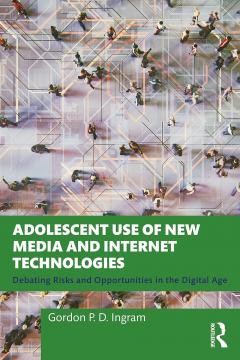By drawing on multiple research studies, the text synthesizes current understandings of the impacts of social network use, online gaming, pornography, and phenomena, including cyberbullying, cyberstalking, and internet addiction, to develop recommendations for the effective identification of at-risk youth, as well as strategies for informed communication about online risks and opportunities. It shows how media discussion of risks to children and teenagers from new technology is highly emotive and often exaggerated, rooted in the “moral panic” surrounding new cultural practices that young people engage in, but which adults do not understand.
Online risks are thus conceptualized as centering on three areas, specific to adolescence, which have undergone radical changes due to new internet technology. These include young people’s identity, the types of content that are accessed, and social relationships. The author shows how these matters stem from the potential of new technology to establish new interpersonal connections, emphasizing how it brings opportunities, as much as risks. As such, he provides a uniquely balanced discussion of potential dangers, while also emphasizing the opportunities for social, academic, and personal growth which new technologies afford young people.
It will be indispensable for researchers and clinicians interested in assessing levels of online risk, as well as scholars and educators with interests in cyberpsychology, social psychology, cyber culture, social aspects of computing and media, and adolescent development.




